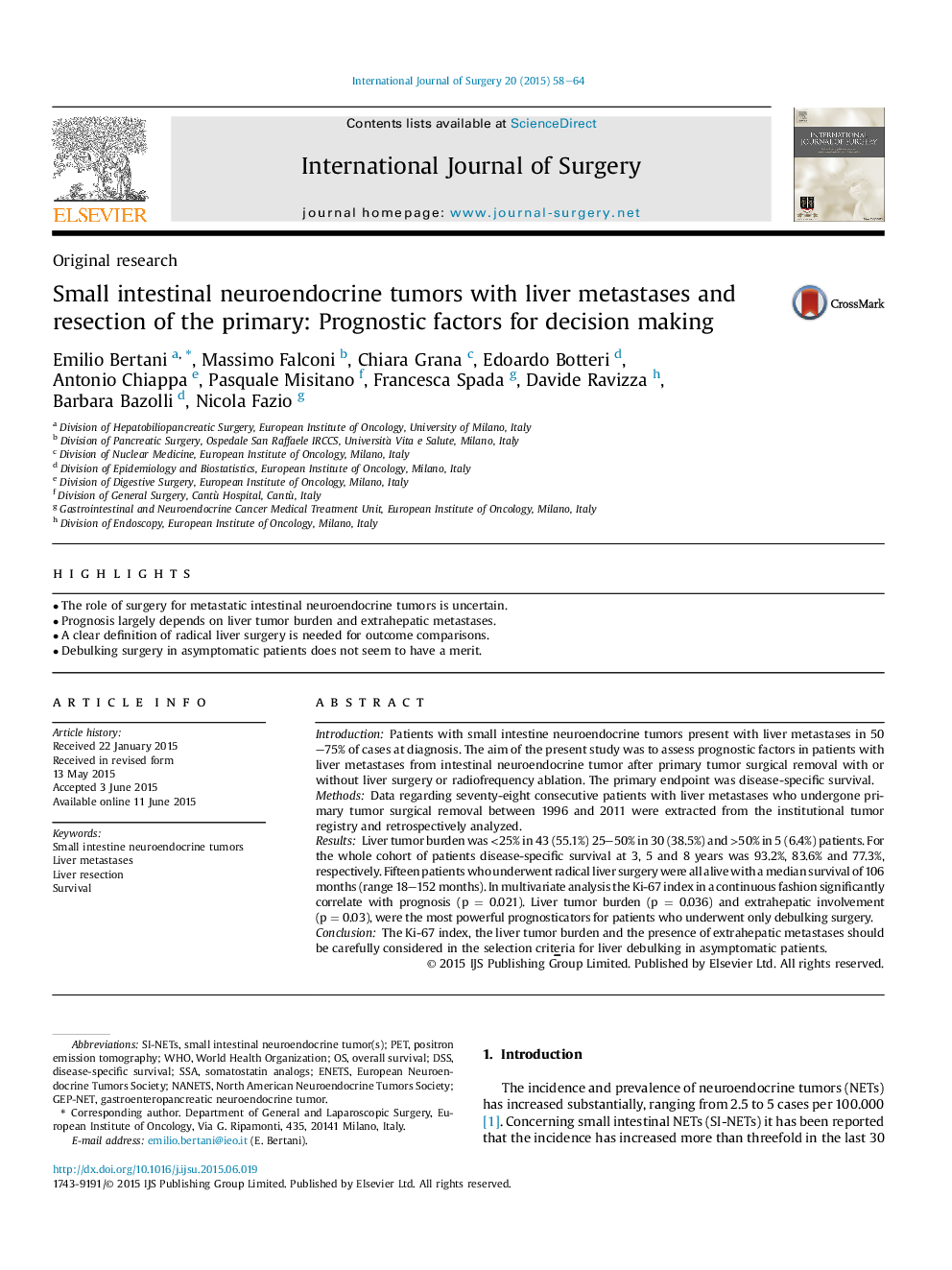| Article ID | Journal | Published Year | Pages | File Type |
|---|---|---|---|---|
| 6251299 | International Journal of Surgery | 2015 | 7 Pages |
â¢The role of surgery for metastatic intestinal neuroendocrine tumors is uncertain.â¢Prognosis largely depends on liver tumor burden and extrahepatic metastases.â¢A clear definition of radical liver surgery is needed for outcome comparisons.â¢Debulking surgery in asymptomatic patients does not seem to have a merit.
IntroductionPatients with small intestine neuroendocrine tumors present with liver metastases in 50-75% of cases at diagnosis. The aim of the present study was to assess prognostic factors in patients with liver metastases from intestinal neuroendocrine tumor after primary tumor surgical removal with or without liver surgery or radiofrequency ablation. The primary endpoint was disease-specific survival.MethodsData regarding seventy-eight consecutive patients with liver metastases who undergone primary tumor surgical removal between 1996 and 2011 were extracted from the institutional tumor registry and retrospectively analyzed.ResultsLiver tumor burden was <25% in 43 (55.1%) 25-50% in 30 (38.5%) and >50% in 5 (6.4%) patients. For the whole cohort of patients disease-specific survival at 3, 5 and 8 years was 93.2%, 83.6% and 77.3%, respectively. Fifteen patients who underwent radical liver surgery were all alive with a median survival of 106 months (range 18-152 months). In multivariate analysis the Ki-67 index in a continuous fashion significantly correlate with prognosis (p = 0.021). Liver tumor burden (p = 0.036) and extrahepatic involvement (p = 0.03), were the most powerful prognosticators for patients who underwent only debulking surgery.ConclusionThe Ki-67 index, the liver tumor burden and the presence of extrahepatic metastases should be carefully considered in the selection criteria for liver debulking in asymptomatic patients.
